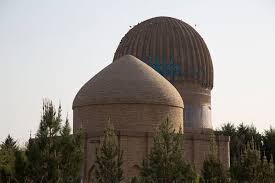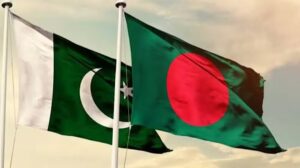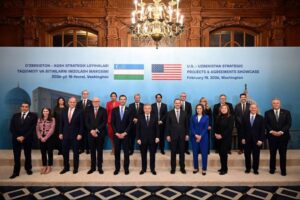From the eyes of Ali Sher Navai’s contemporaries
Navai’s contemporary historian Daulat Shah Samarqandi writes about Navai:
Turkic divans of the great poet are integral and essential in the meetings of rulers and royalty… His fame reached Hijaz, Nishapur and Isfahan. People of Ajam (non-Arab countries) recite his poetry with great pleasure; all parts of the world are full of these pearls ” It is seen in his following lines:
Make my sayings loved amongst the people,
Make my writings enjoyed amongst the hearts.
Make their language be the Turkic tongue,
Make its poetry to their hearts the song…
Make it a tiara for my people,
Make the ones who read it very cheerful.
Make the seven heavens befriend with the Turks,
Make the seven continents desire it.
Alongside with his devotion to the Turkic poetry Navai did much for the development of the Persian poetry of his time. His aim was to retain a great many of poetic and literary genres that were almost forgotten in the fifteen century.

For instance, he supported many Persian poets and urged them to create as many genres as possible. Abd ar Rahman Jami writes about Navai’s efforts to keep the Persian poetic traditions:
May the heavens bestow their blessings upon,
The pen that has been embroidered on.
Be endowed Persian with pearl,
Be Granted poetry of Dari with jewel.
Navai spent his life trying to win back the glory and prestige of the great cultural-spiritual life and civilization of Turkic people, which once had been as prosperous as the civilization of the Persians, and to resurrect national pride and national identity. Through his scientific, philosophical-religious and literary works this brave, tolerant and patriot son of his nation restored the real prestige of Turkic people that had been destroyed as a result of conflicts between Turkic people, and people of Mavara al-Nahr in particular, with barbaric mongols and their descendants.
The great poet conducted a large-scale activity in widely spreading morality. Within almost 30 years, he comprehensively helped his childhood friend, the fair ruler of Timurids Sultan Husayn Bayqara Mirza. His achievements were great in the preservation of peace in the state, progress of science and education, strengthening international relations.
He devoted his life to the development of the science and art of the nation, to establishing tolerance and peace among people, and strengthening of the country. That is why Timurids Sultan Husayn Bayqara called him as “the pillar of the country”. The power and estate of Navai was not a chance to gain extra privileges and adornment for him. All he craved for was the development of science, restoration of national self-esteem and integration with human dignity.
Historian Muhammad ibn Khvandshah ibn Mahmud in his “Makdrim al-akhlaq” (Beautiful manners) gave a list of writers and scientists who worked on their creations under the support and sponsorship of Navai and all of them mentioned the disinterested aid of the poet in their books with the feeling of gratitude. Muhammad ibn Khvandshah mentioned about 20 important scientific researches which were held under the leadership and supervision of Navai’s their authors and the list of poets and representatives of scientific world who were under the patronage and financial support of Ali Sher Navai.
Ali Sher Navai financed the education of many talented disciples from his personal funds, supported poets, scientists and artists morally and financially. Thus, specifically under his protection, the whole generation of the famous scientists and creative people had grown there.
Ali Sher Navai was a blessed man. Allah gifted him with a great talent and a set missions to enlighten the humanity – it is well seen from the objective feedbacks of Abd ar Rahman Jami and Nassiruddin Ubaidullah Ahrar. The rulers of Timurid’s dynasty Sultan Abu al-Qasim Babur and Sultan Husayn Bayqara had a deep respect and adornment toward the great poet. Navai himself felt the divine mission of his life in this world:
Having great goals in front happy was I,
Still, never a choice to disclaim them had I
A lot of obstacles on their ways to come,
To ones who claim the great goals to overcome.
Though why should I be sad or more upset,
Since God for me those obligations set!
Navai’s works seem to be a message to the future. He repeatedly states that the highest benefactor for humans is living in friendship and peace; the highest task for humanity is providing the refinement of the Earth, and preserving peace in the world. As this great scientist and poet tells himself:
Just as flowers in this flourishing garden,
No one is eternal – are guests with burden.
Those who exist are friends for each other:
Those who are friendly – be blessed men.
It goes without saying that each of Navai’s verses, containing the appeal to good deeds, generosity calls for peace, love, fraternity, and friendship between people as the core nucleus, presents particularly deep significance even in the present uneasy time when conflicts are arising in various areas and regions; when insecure information war threatens amicable and peaceful life of different nations; when pseudo-religious claims lead to intolerance and bloodshed, but all do nothing but pursue the desire for power.


